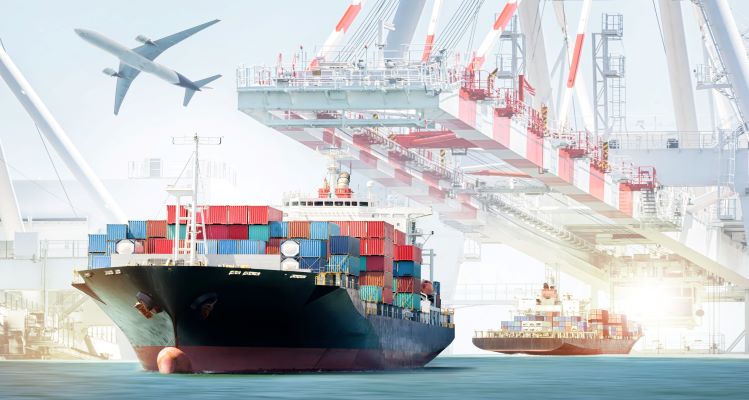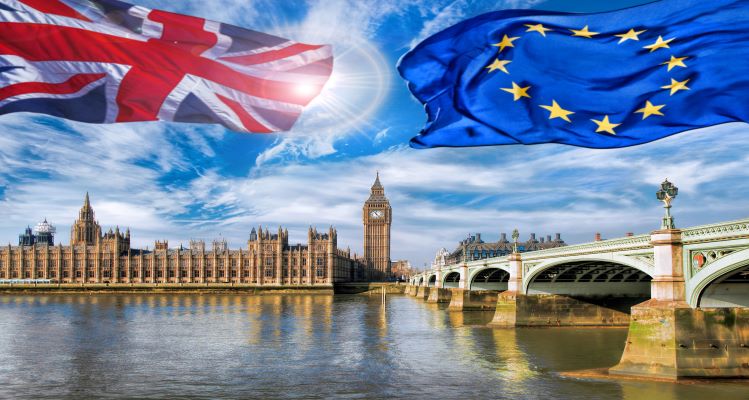As of 1st January 2021, the United Kingdom of Great Britain and Northern Ireland is no longer a part of the European Union and is considered as a third country, a separate customs and tax territory. EU rules no longer apply to trade with the United Kingdom of Great Britain and Northern Ireland (hereinafter referred to as the “United Kingdom“), but the Trade and Cooperation Agreement between the European Union and the European Atomic Energy Community on the one side, and the United Kingdom of Great Britain and Northern Ireland on the other side, applies (hereinafter referred to as the “Trade Agreement“), which has been applied provisionally since 1st January 2021.
The rules for trade with the United Kingdom have changed significantly compared to the situation before Brexit, but the United Kingdom is and also will be the important trading partner for the Union and its Member States. When trading with the United Kingdom, which will be connected with the flow of goods across the customs border, it is necessary to get used as soon as possible to “old-new” procedures for the realisation of customs duties at customs offices. Since the entry of the Slovak Republic into the Union (since 1st May 2004), trading with the Member States has been carried out without “administrations” at customs office, but the customs offices have continued to operate. Customs officers have moved from the border to inland customs offices. However, compared to 2004, the customs procedure has undergone a significant change towards electronisation, and thus customs declarations for import or export are already lodged electronically. Various forms of customs simplifications, which have been significantly strengthened since 1st May 2016, when the new Union Customs Code came into force, make a significant contribution to speeding up customs procedures at customs offices.
In the case of regular trade with the United Kingdom and the associated customs procedures at customs offices, we clearly recommend the use or to obtain the status of, in particular, the authorized consignor, the authorized consignee and the entry in the declarant’s records for import and export of goods. These are the basic simplifications that will help to speed up customs procedure. In order to make it easier to obtain these simplifications, it is more than appropriate to have the status of Authorized Economic Operator (AEO), when even the holder of this authorization has the possibility to apply for reduction in customs debt guarantees for 50%, 30% and even 0%. The entrepreneur will therefore save his money that he can use for further business development.
In order to maintain a trading partner in the United Kingdom in the case of export of goods from the Union, and subsequent import into the United Kingdom, it is possible as of 1st January 2021 to make out a statement on origin of goods on the basis of a supplier’s declaration in order to claim a preferential treatment in the United Kingdom. The statement on preferential origin generally aims to reduce the customs duties set by the customs tariff or the tariff exemption from customs duties under agreements concluded between countries.
According to Article GOODS.5 of the Trade Agreement: „Except as otherwise provided for in this Agreement, customs duties on all goods originating in the other Party shall be prohibited.“ This means that if goods originate in the Union or in the United Kingdom, they will not be subject to any duty. Briefly, it means a preferential treatment in regards to originating goods. The only condition for obtaining this preferential treatment is that these goods must be originating in the Union or in the United Kingdom. The following goods shall be considered as originating in the other party according to Article ORIG.3(1) of the Trade Agreement:
- products wholly obtained in that contractual party;
- products produced in that contractual party exclusively from originating materials in that contractual party and
- products produced in that contractual party incorporating non-originating materials provided they satisfy the requirements – products-specific rules of origin.
However, it shall apply that if the product has acquired originating status, the non-originating materials used in the production of that product shall not be considered as non-originating, if that product is incorporated as material in another product. Provided that the conditions for acquiring originating status must be fulfilled without interruption in the United Kingdom or in the Union.
It should only be noted that the rules of origin of goods have never been simple and without the necessary knowledge of this issue, it may happen, that the origin of goods is confirmed for goods that would never have acquired such origin. As the customs offices know and verify the validity of the statement on origin, it is also necessary to cooperate closely with specialists, especially during more complicated trades. Incorrect statement on origin of goods will result in obtaining unjustified preferential treatment for the business partner – the importer, who will have to pay to the relevant customs authorities leaked customs duties and value added tax, the importer will have to pay a customs offense fine, while even the person who unjustifiably has made out the statement on origin of goods (exporter) will face with the proceedings. And we have not even mentioned the civil law related issues arising from this problem.
According to Article ORIG. 19(1) of the Trade Agreement a statement on origin shall be made by an exporter of a product on the basis of information demonstrating that the product is originating, including information on the originating status of materials used in the production of the product. The exporter shall be responsible for the correctness of the statement on origin and the information provided. Procedures to facilitate the issue or making out of proofs of origin are set out in Commission Implementing Regulation (EU) 2015/2447 to the Union Customs Code in Articles 61 et seq., where, inter alia, the supplier’s declaration and the long-term supplier’s declaration for proof of origin are also regulated.
As the issue of statements on origin may slow down trade, on 31st December 2020, the European Commission issued Commission Implementing Regulation (EU) 2020/2254 of 29 December 2020 on the making out the statements on origin on the basis of supplier’s declarations for preferential exports to the United Kingdom during a transitional period. This regulation in accordance with Article 1 allows the exporter to make out statement on origin for exports to the United Kingdom until 31 December 2021 on the basis of the supplier’s declarations subsequently provided by the supplier on condition that by 1 January 2022 the exporter has the supplier’s declaration in his or her possession. If the exporter does not have this supplier’s declaration in his or her possession by 1st January2022, the exporter shall inform the importer about that fact on 31st January 2022 at the latest.
Under the above-mentioned Commission Implementing Regulation (EU) 2015/2447 to the Union Customs Code in accordance with Article 61 et seq., the exporter can make out the statement on origin of the goods in the Union, even if he does not have proof of origin from his supplier by 31st December 2021. However, the exporter must obtain the supplier’s declaration by 1st January 2022. If he does not obtain it, he must inform the importer in the United Kingdom by 31 January 2022. The importer will thus not benefit from the preferential treatment and the British customs office will calculate him for customs duties and value added tax, or excise duty.
According to Article ORIG. 19 (2) of the Trade Agreement, a statement of origin shall be made out using one of the language versions set out in ANNEX ORIG-4 (Text of the statement on origin) in an invoice or on any other document that describe the originating product in sufficient detail to enable the identification of that product. A statement on origin shall be valid for 12 months from the date it was made out or for such longer periods as provided by the party of import up to a maximum of 24 months. The Registered Exporter system (REX) for a statements on origin of consignments above EUR 6,000 is maintained.
Our law firm can provide you with more information how to proceed with a statement on origin of goods in the Union in order to obtain preferential tariff treatment in the United Kingdom, it means duty-free in compliance with the established rules, as well as further information on how to properly set up and obtain any simplification, including AEO status, which can significantly help when trading with the United Kingdom.
If you need advice on the matter or the preparation of the necessary documentation, do not hesitate to contact us.






